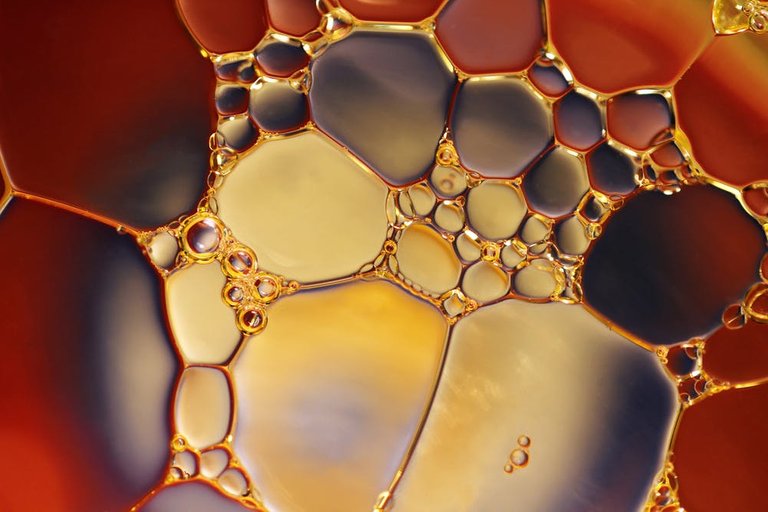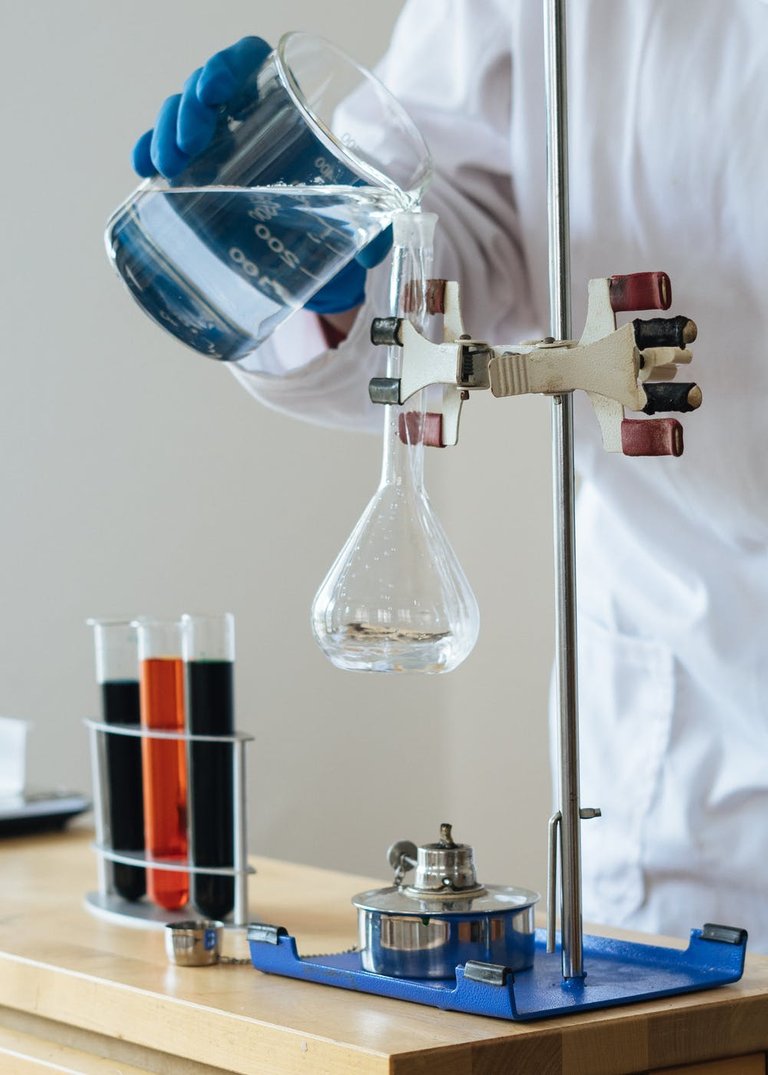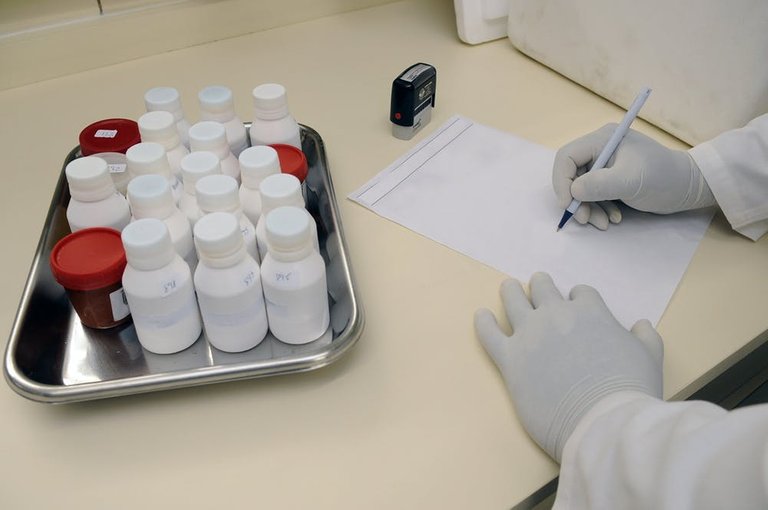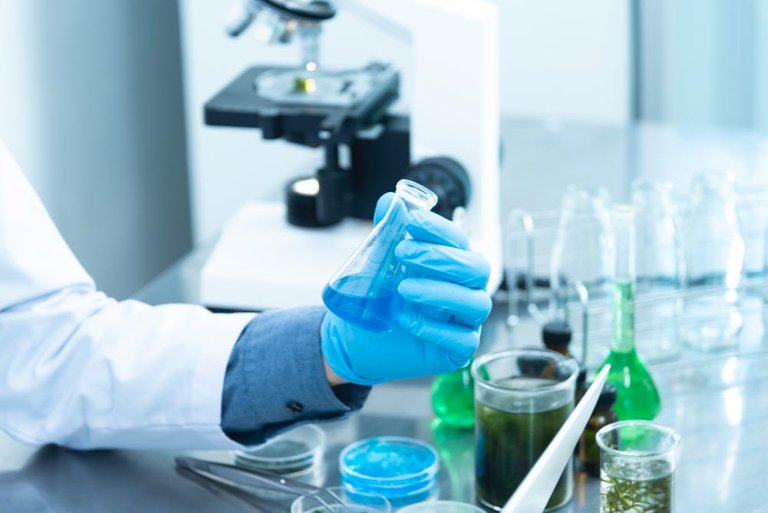Hello beautiful people, today I will be introducing us to a branch of science we are all familiar with. The chemistry branch of science.
I will be starting the introduction today and as day goes by in my subsequent post, we will be going deeper in the study of chemistry.

Image from pexels.com by Pixabay
WHAT IS MATTER?
Matters are things that have mass and occupy space. These two characteristic must be found in a thing before they can be regarded as an example of matter. Things that we always see in our environment in our surrounding can he regarded as matter.
The houses we live in, the smartphone we used in our daily online activities, the luxurious cars we drive around, the cooking utensil we use for our daily cooking, the television we use in watching our favorite movies and favourite channels and you reading this post are examples of matter.

Image from pexels.com by pixabay
They are numerous around that that in one way or the other we have depend on them to sustain us daily and live to our daily activities.
WHAT IS CHEMISTRY?
With a simple definition about chemistry, it is a branch of science that deals with the study of matter. It is necessary to define about matter earlier in order to give us a proper explanations about what we really means by chemistry.
As we all know, the field of science is wide but the branch of science field that deals with the study of matter is regarded as Chemistry.

Image from pexels.com by Retha Ferguson
When matter is studied about, its structure, its composition, properties and the changes they undergoes are all involved in the study of matter.
WHAT ARE CHEMICALS?
In this aspect, we are talking about the forms of matter. And this forms of matter can exist as natural and artificial (man-made). These are all refereed to as the chemical substance.
WHY DO WE REALLY STUDY CHEMISTRY.
Now like I said, earlier we are all familiar with the chemistry study but most of us are really ignorant of the reason why we study chemistry.
Some believe chemistry are to be study just because it is one of the branch of science just like how biology and physic is.

Image from pexels.com by pixabay
But to give answer to our long live ignorance, we study chemistry in order to understand the way matter behaves. Earlier I was talking about the definition of chemistry explaining that chemistry deals with the study of matter. Under the study of matter, we are expose to understand and get knowledge about how those matters really behave.
You are a matter, with the study of chemistry, you are help to get the necessary knowledge of how you behave as regard to a from of matter.
The study of chemistry helps us to understand the way matter behave, and read under different conditions and also to device ways in which it can really be used to improve our life.
Chemistry is not limited to that also as it is also concern with the utilization of natural substances and the creation of artificial ones is not left out also.
The study of chemistry also helps us to acquire the certain scientific skills such as the handling of laboratory apparatus, performing experiments with ease, and thinking scientifically
The application of knowledge and skills gathered through the study if science is called the technology.

Image from pexels.com by Chokniti Khongchum
As the scientists in the field of physic are called physicist, those in biology are called biologist so also chemistry is not left out. Scientist in the field of chemistry are called the chemists.
CHEMISTRY LABORATORY APPARATUS.
Some of the common and frequently used chemistry laboratory pieces of apparatus will be discussed below. They are of different shapes and size. you should be able to identify them by their names, draw all them and be familiar with their uses most of this are made of glass they should be handled with care to avoid damages.
(1) Beaker: used in holding solid and liquid
(2). Test-tube: used in holding reactants.
(3). Test-tube rack: used in keeping the test tubes
(4). Spatula: for transferring a solid into the test tube
(5). Filter funnel: for filtration and for transferring a liquid into an apparatus with a narrow neck
(6). Wash bottle: it is made of flexible plastic; used in keeping distilled water
(7). Evaporating dish: used in evaporating liquids.
(8). Tripod stand: to support evaporating dish, flask, e.t.c when heating is required.
(9). Bunsen burner: in providing high temperature by the combustion of liquified gas
(10). Thermometer: in measuring the temperature of a liquid
(11). Glass rod: for stirring a mixture or as a support when pouring a liquid from a container
(12). Retort stand: Generally used as a support for thermometer, funnel.
CONTENTS OF CHEMISTRY
Chemistry is a relevant and developing science, which is making essential contributions towards human life, society, industry, civilization. Its content can be divided into four broad categories.
Which are listed below;
(1). The chemical World
(2). The chemistry and Environment
(3). Chemistry of Life
(4). Chemistry and industry.
THE SCIENTIFIC METHOD.
Chemistry like other branches of science jas developed through a logical scientific method of working. A scientific law is a statement that describes experiment facts.
A theory in his own case is an idea suggested to explain an experimental fact. For instance compressibility I gases is explained on the assumption that gases are made up of small particles that are far apart.
A theory must be testable. During the process of testing, it may be modified or rejected and a new one is formulated. When an idea is still in the testing stage, it is called a hypothesis and when other scientist universally accepts it. It becomes a theory.
SCIENCE PROCESS SKILL.
During the course of experimental work in chemistry, the following science process skills should be acquired: manipulating, observing, identifying, classifying, measuring, recording, calculating, precisely, communicating, predicting, investigating, formulation of hypothesis, designing, experimenting, collecting data, interpreting data, generalizing, evaluating, drawing conclusion and e.t.c.
Science process skills at the pathways and strategies being adopted and followed bike chemist in order to arrive at the product of chemistry. They are implore in the day to day chemical and science activities to bring out the result of chemistry product.
CHEMISTRY IN EVERYDAY ACTIVITIES.
Experiments in chemistry are not magic; they are every day activites, observation and experience outside the school.
DAILY ACTIVITIES.
(1). Striking of match
(2). The cooking with firewood, kerosene or the cooking gas
(3). The bathing with toilet soap
(4). Washing Clothes with laundry soap or detergent
(5). Burning of candles
(6). Breathing in and out. And many more.
KITCHEN CHEMISTRY.
Yea many of us might be surprised to hear kitchen chemistry. Chemistry is not only limited to the laboratory or when experiment want to be performed. If that is the case, then the application of chemistry will really be limited to the laboratory usage only. Like I said, it is not only in the school laboratory that experiment are performed. In homes, it is the kitchen that controls chemical processes and changes take place during the process.
Cooking process involves sorting, pounding, sieving, estimating, measuring, weighing, grinding, observing, boiling, frying, roasting, refluxing, diluting, concentrating, titrating and many more that can't be mentioned.
I will be stopping here for today and in my next post series, I will continue from here.
If you have any suggestion, ideas or contributions please don't hesitate to live it down at the comment section below.
Thank you for dedicating your time reading. Have a wonderful day.
REFERENCES.
- Research done with the help of understanding chemistry.
- https://chem.libretexts.org/Courses/Palomar_College/PC%3A_CHEM100_-_Fundamentals_of_Chemistry/01%3A_The_Chemical_World
- http://www.wiredchemist.com/chemistry/instructional/an-introduction-to-chemistry
- https://www.toppr.com/guides/general-knowledge/basic-science/basic-chemistry/